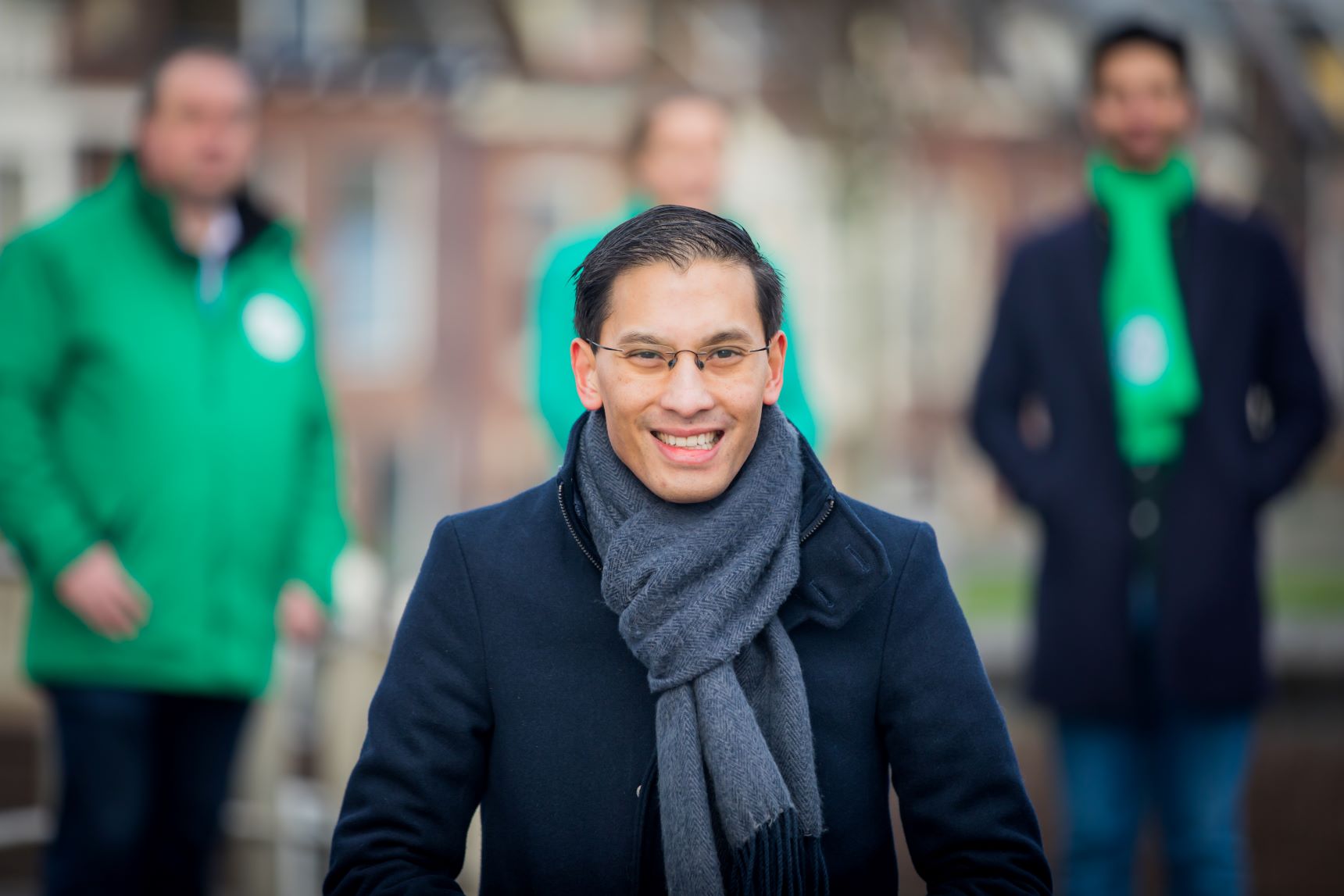Student accommodation and the growth of TU Delft are returning themes in the election manifestos of Delft’s political parties. A series of interviews with party candidates.
Frank Visser: "In Delft we have little space, so we have to build more in the neighbouring municipalities. (Photo: CDA Delft)
Party candidate Frank Visser comes from a family that was always socially engaged. His parents believed that it was important that, apart from school and his part-time job, Visser made himself useful to society. “In my case that was politics,” he says. “I want to give a greater voice to the people who find it difficult to have access to politics.”
You have ideas for all sorts of types of housing. What would you do about the shortage of student rooms?
“We can address it in two ways. One, as we have very little space in Delft itself, we need to build in the neighbouring municipalities. These are Schiedam and Rijkswijk and perhaps other municipalities in the future as long as they accessible by public transport. Two, we need to provide a lot more student accommodation on campus.”
The land belongs to TU Delft, so they would need to cooperate. How will you convince TU Delft to build more than the current houses and possibly even temporary housing?
“We recently submitted a motion (in Dutch) to update the covenant signed with TU Delft in 2016 so that agreements about housing on campus can be added. It is a question of drinking a lot of cups of coffee with TU Delft administrators to make it clear that the shortage of rooms is a problem that we have to solve together.”
In your election manifesto you talk about ‘management instruments’ to exert influence on the growth of TU Delft. What instruments are these and how do you envision the future of TU Delft?
“I will not say that no more students may come. That would not be fair and the Municipality does not decide this. But it is clear that the growth as it is now cannot be sustained as the Municipality cannot handle it in terms of housing. Other management instruments are needed at national level as universities are currently financed according to student numbers. This acts as a stimulus for them to accept as many students as possible. In our motion here in Delft, we also ask for an investigation to see if it is possible to have local management instruments.”
Tell us one thing that you managed to do for students or young people last year.
“We recently raised questions in the Municipal Council about the Pauwmolen, a block of flats for students and first time job seekers. While this should be an affordable place to live, the impression we are getting at the moment is that there is a strong business model behind it. It is not the intention that housing providers maximise their returns on the backs of students and first-time job seekers.”
If you had a big pot of money, what would you spend it on?
“I would put that money in developing young children’s talent, for example through music lessons at school. If children discover through music, sports or culture that they are good at something and enjoy it, they become more resilient.”
-
For this interview series, the editors of Delta approached all participating Delft political parties by email, sms, phone, Instagram, LinkedIn and Facebook. Despite repeated contact attempts, we did not succeed in scheduling interviews with Bij1Delft, Onafhankelijk Delft and Volt. Read the election programmes of all participating political parties in Delft via this link (in Dutch).
Do you have a question or comment about this article?
a.m.debruijn@tudelft.nl


Comments are closed.